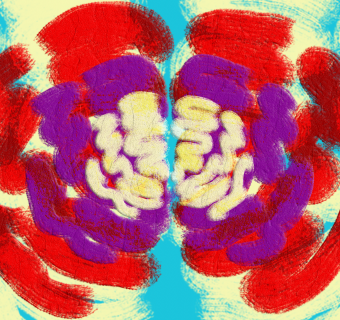The beginning of the semester is exciting. We get to come back to Charlottesville to see friends we’ve been missing, we start new and (hopefully) interesting classes, and we all feel invigorated to rock this semester. But all that can also drain us of our energy. Before we know it, we’re a month into classes and feel drowned with work and February weather. During times of change or transition, I always feel a disruption in my mental health, and I never need to look any further than the start of a new course load or the new year for these feelings to resurface. After years of not even being fully cognizant of what was going on in my own thought processes, I finally realized that I needed to treat my mental health with just as much care as I would take when I got the cold or the flu. Knowing when (and how) to do mental check-ins and take care of oneself is vital to success in leading a healthy life.
Exercise (get outside!)
It’s so annoying to hear someone tell you to get up and move when all you want to do is lie in bed after a long day of classes and school work. But as irritating as this advice is, it is so common for a reason. I’m bad at this one, but I always find that even walking for thirty minutes a day makes me feel happier and more accomplished. Exercise is also a great way to clear out your mind and rejuvenate your brain. Another plus is exercising outside, which may seem like a hefty task when the sun sets at 5pm, but will help with any sense of seasonal affective disorder. This could mean leaving for class ten minutes earlier and enjoying nature, going for a hike somewhere local, or even joining the Outdoors Club at UVA.
Destress/Distract
Relax! Time can seem scarce when you have papers, tests, and all sort of other obligations outside the classroom to worry about, but for me, destressing often involves watching something or listening to music.I usually find an old favorite movie or pick a new show to keep up with each semester. Listening to old music or discovering something new can also help to transport you to a calmer state of mind.

Make a good meal
I am way too guilty of eating the same not-so-nutritious meal three nights a week, but I am putting forth concerted effort to actually eat vegetables and fuel my body. However, eating and preparing a well-balanced meal can sometimes be unattainable and expensive for many students. If so, try to drink plenty of water and be more aware of how different substances affect your body. I know that when I have too much coffee or caffeine, it triggers some of my anxiety symptoms and makes me jittery or unable to focus.
Try meditation and mindfulness
Something that really changed the way I thought about my day-to-day mental health was mindfulness. For a while I only thought about my mental state when it was at a low and I was suffering from a bad spell. My therapist and I started talking about different mindfulness practices and how they were particularly beneficial for certain people. For me, breathing exercises and understanding my mind and thoughts helped me to reach a new relationship with my mental health.To start, you only need to download some meditation apps or read up on mindfulness. There are also courses that specialize in wellness and mental health, and there are opportunities for group yoga and meditation on Grounds.
Sleep
If I don’t keep up with meditation, I always find that when I have so much on my mind I struggle to sleep (and probably teeter towards insomnia). Something I’ve been doing since I was young (without knowing it is actually meditation) is a quick body scan. It can help lull you to sleep in no time or help you achieve a state of relaxation. Without sleep we cannot function properly, let alone think or perform at our best.
Volunteer
Charlottesville expands so far beyond the UVA community, and as students we are sometimes blind to the world continuing on around us. This discontinuity between the University and the greater town can lead to a false sense of importance or a false reality, and volunteering for something larger than ourselves can get us out of our heads--and make us feel better about ourselves in the process. Loaves and Fishes is a food pantry that serves the community and as always, Madison House is a great resource that will connect you to many opportunities to give back.
See a therapist or counselor
Another huge step in taking care of your mental health is knowing when to seek professional help. There are so many people, either affiliated with UVA or not, whose job is to provide services and advice for any range of mental health issues. You can start with CAPS or the Women’s Center, which also has its own counseling services. Talking to someone else and getting an outside perspective can be enormously beneficial and provide you with individualized methods to take care of your mind. We need to normalize seeking professional help and not be afraid to ask for support. More than anything, feeling accomplished, healthy, and happy is an amazing goal that a counselor can help you achieve.










